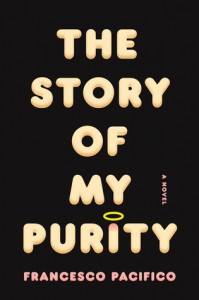 Title: The Devil's Detective (Goodreads)
Title: The Devil's Detective (Goodreads)
Author: Simon Kurt Unsworth
Published: Del Rey, 2015
Pages: 368
Genres: Horror
My Copy: Library Book
Buy: Amazon, Book Depository, Kindle (or visit your local Indie bookstore)
Thomas Fool is one of the Devil’s Detectives, known as Information Men, his job is to keep order in Hell. When a badly bruised and unidentifiable body is discovered, Fool is given the case. The problem is, this is Hell and everyone is guilty of something. How can he investigate a murder where everything around him screams death? Who will come forward as a witness when everyone has something to hide?
I have been thinking a lot about writing better reviews and I feel like Simon Kurt Unsworth has made that job a whole lot easier with The Devil’s Detective. Before reading this book I had most of the themes worked out in my head. So let us start with the basic; a mystery novel is typically a quest narrative. We have the detective that is the hero of the story, setting out to solve a mystery. We know what the mystery is from the back of the novel but then again there always is something more going on.
If you think of the detective as the hero, it is easy to think a white knight on a journey to bring justice to the world. Although can this really be a morality tale? This is set in hell and if we go by the depiction of hell found in the Bible or Dante’s Inferno, it is one of hopelessness and despair. Assuming Unsworth is going to try to keep to the traditional narrative structures and also keep the Christian theology we can illuminate some core character traits.
There will be no true justice, Thomas Fool will not be a savour figure; he might solve the crime but they are still in Hell. Justice in Hell, seems unlikely. Now the idea of the detective being called an Information Man, leads me to think he will have knowledge of what goes on in Hell, but can he change anything? Considering the location this is unlikely, I do believe he will never effect the social balance, there will be no change and no real justice. If you do not believe me, consider his name, Fool.
I went into The Devil’s Detective with these preconceived thoughts, and turns out I was correct in thinking this way. I did not expect anything special, this novel was a light read; blending horror with a typical mystery plot. I wish I could say I enjoyed the book but I did not, there were no surprises and nothing stood out. I do think the theology was a little off and Unsworth’s depiction of Hell really needed work. If you want to read something set in Hell, I recommend Inferno; it has some of the best descriptions of what Hell might be like. Obviously we cannot be sure but it really does capture the despair and pain they we often associate with Hell.

 Title: Quiet: The Power of Introverts in a World That Can't Stop Talking (
Title: Quiet: The Power of Introverts in a World That Can't Stop Talking ( Title: Choke (
Title: Choke ( Title: The Handmaid's Tale (
Title: The Handmaid's Tale ( Title: Bonjour Tristesse (
Title: Bonjour Tristesse ( Title: Satin Island (
Title: Satin Island ( Title: Motherless Brooklyn (
Title: Motherless Brooklyn ( Title: The Green Road (
Title: The Green Road ( Title: The Lucifer Effect (
Title: The Lucifer Effect ( Title: The Story of My Purity (
Title: The Story of My Purity (